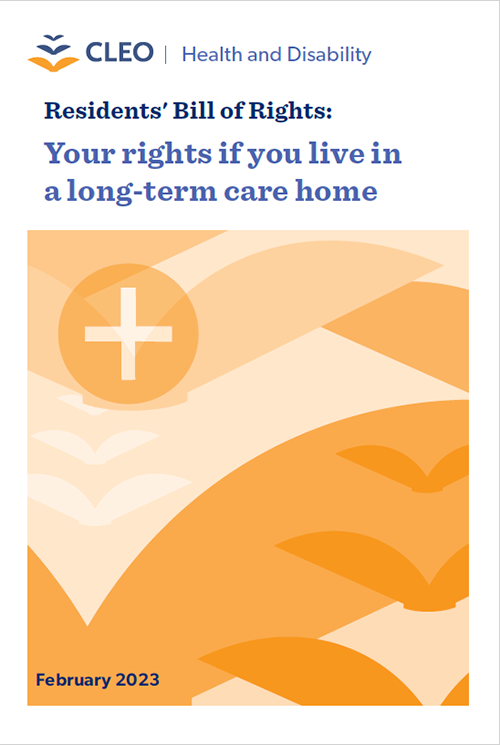Resources
-

Property division: Married couples
This resource explains how property is divided when a married couple separates or divorces, or when one spouse dies.
-

-

Record suspension checklist
This tool is a list of steps to follow when you apply for a record suspension.
-

Refugee hearing tipsheets
If you are a refugee claimant, these printable tipsheets can help you to:
- understand how to prepare for your refugee hearing
- gather your evidence
- get your decision and take other important steps after your refugee hearing
-

-

Rent increases
This resource explains the rules a landlord must follow to increase the rent. It also talks about steps tenants can take if they have paid an illegal rent amount.
-

Rental agreements
This resource explains Ontario's rules about rental agreements, including what can and cannot be included in them. It also explains your options if your landlord does not use Ontario's standard rental agreement. This resource explains Ontario's rules about rental agreements and what can and cannot be included in them. It also explains what tenants can do if their landlord does not use the standard rental agreement.
-

Renting a place to live
This resource offers information to tenants about how much rent a landlord can charge, the deposits and payments a tenant might have to make before moving in, and other rules landlords and tenants must follow. There is also information about discrimination, moving out, taking legal action if a landlord breaks the rules, and where to get referral information in many languages.
-

Repair request form for tenants
This resource can be used by a tenant to ask a landlord to make repairs to their rental unit.
-

Residents’ Bill of Rights: Your rights if you live in a long‑term care home
In Ontario, long-term care homes must follow a law called the Fixing Long-Term Care Act, 2021, which includes a Residents' Bill of Rights. This resource explains these rights in language that's easy to understand. It lets residents know what they can do if their rights are not being followed and includes a list of places that give legal help and information.
-

-

Social assistance rules about couples
This resource talks about how spouses who live together must qualify for social assistance as a couple. It explains how Ontario Works (OW) and the Ontario Disability Support Program (ODSP) decide whether two adults who live together are spouses. Topics include living separately from a spouse, living with a close family member, living with a roommate, and how to get legal help if you disagree with the decision that OW or ODSP makes.
-

Spousal support
This resource discusses the factors that affect whether spousal support must be paid, in what amount, and for how long
-

Spousal support when you are on OW or ODSP
This resource explains the rules about spousal support when someone is getting assistance from Ontario Works or the Ontario Disability Support Program.
-

Steps in a Family Law case
These are a set of 3 interactive flowcharts to help people understand and work through the family law court process:
- Before you start flowchart describes the issues couples need to think about when separating and shows them what they can do if they agree on those issues or if they do not agree on them
- Applicant flowchart explains the steps a person has to take to start a family law court case and continue with it until it's resolved
- Respondent flowchart explains the steps a person has to take to respond to a family law court case against them, and continue with it until it's resolved
-

-

-

Taking time off work: For new and expecting parents
This resource explains pregnancy and parental leaves in Ontario law and maternity and parental benefits from Employment Insurance (EI). It also explains how many weeks of EI benefits and time off work that birth parents and adopting parents can get.
-

Telephone and internet scams
Criminals use telephone and internet scams to trick people into giving them money or personal information like credit card and bank account numbers. This resource explains how to recognize and protect yourself against common scams, and what to do if you fall victim to a scam.
-

Tenant’s right to move back in after repairs or renovation
This letter writing tool can be used by a tenant to write a letter to their landlord saying they want to move back into their rental unit after repairs or renovations are done

